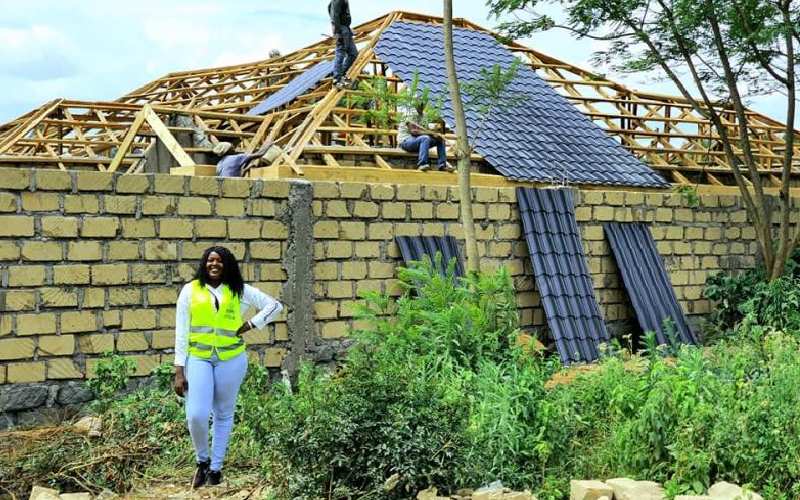×
The Standard e-Paper
Stay Informed, Even Offline

Linnet Kathambi, 30, is the Founder of Sung Timber and Products, a company that specializes in building and construction products.[Standard]
The spotlight shone on Linnet Kathambi after her firm built a three-bedroomed house for actor Joseph Kinuthia popularly known as Omosh. This was part of a larger charity response to help the former Tahidi High star regain his footing after having fallen on hard times.







